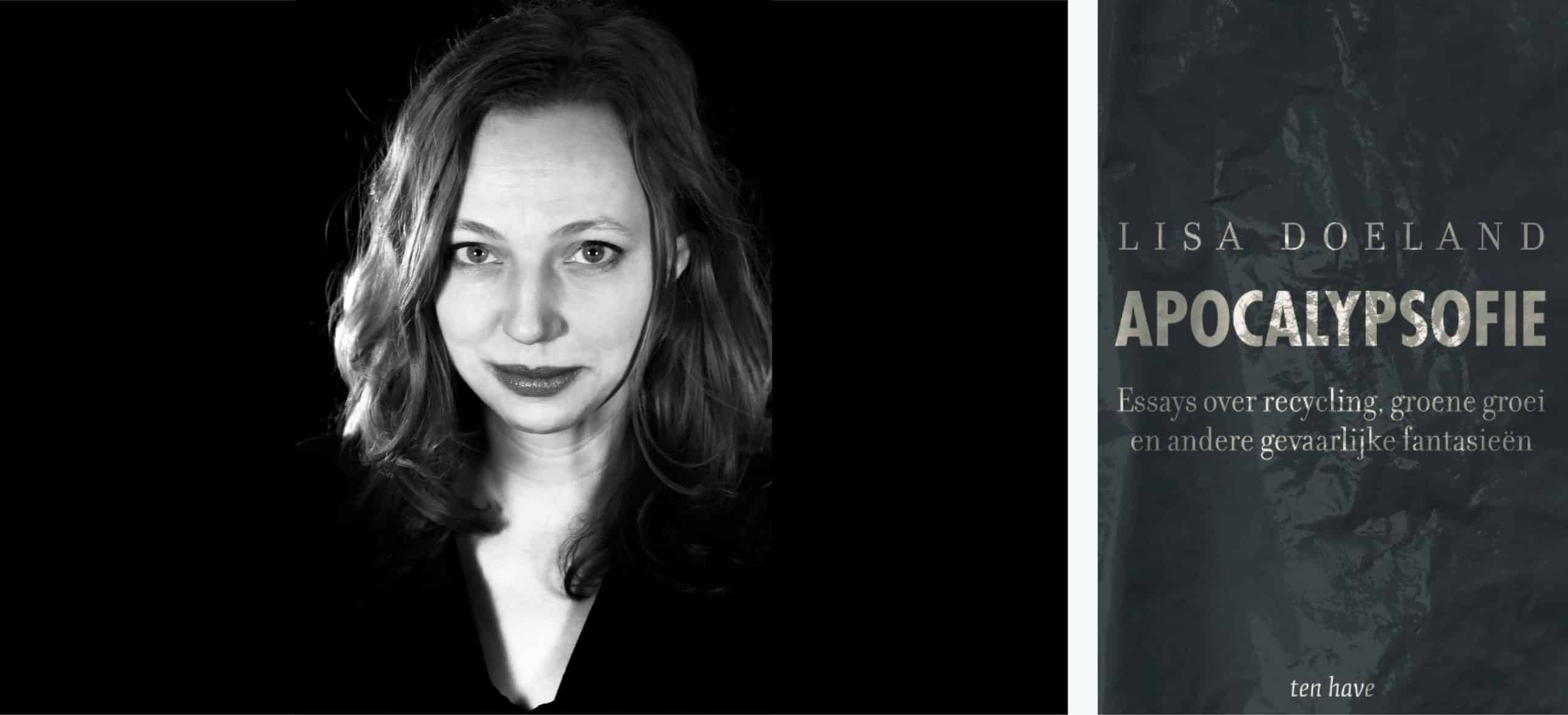School's Out! #31 with Lisa Doeland
Friday 24 February 2023, 18:00 - 22:00
In February, our guest speaker for School’s Out! was Lisa Doeland. She is a philosopher and the author of a.o. Apocalypsofie. Her interests lie in ontology and waste, hauntology, dark ecology, the uncanny, capitalism and desire and apocalyptic thought. Lisa Doeland will introduce us to her view on the Anthropocene. She looks at it with a general feeling of pessimism, as a good antidote to the unfounded belief in technological solutions, so common in the architectural world and beyond.
As she writes: "We tend to imagine the end of the world as something futural. We also tend to imagine it as an all-encompassing event. What if we think of the end of the world as something that has already occurred? And what if instead we inquire into the ends of worlds (plural)? We should think of the Apocalypse as engagement with the impossibility of the present. Things cannot go on like this and we know it (but still…). Apocalypse literally means “revelation” and what is revealed is the coming mass extinction. But it shouldn’t end here. Apocalypsophy tries to think through the end and inquires how we can learn to live in the ruins. Another end of the world is possible."

Programme
18:00 - 19:00 Doors open, drinks, bites and tunes
19:00 - 20:00 Talk by Lisa Doeland + Q&A
20:00 - 20:30 Short film, selected by Jord den Hollander
20:30 - 22:00 Drinks, bites and tunes
About Lisa Doeland
Lisa Doeland is a philosopher. She lectures at both Radboud University and the University of Amsterdam in ethics and in contemporary issues, such as ecology, green ideology, the Anthropocene and the Apocalypse. In her PhD research she explores the myriad ways in which we are haunted by these things we (call) waste. Drawing on the work of philosopher Jacques Derrida and psychoanalyst Jacques Lacan she traces the “spectre of waste” and sketches a hauntology of waste, that forces us to rethink being (ontology) – to be is to haunt and be haunted – and allows us to critically reflects on (eco)modern myths and fantasies, such as recycling without remainders within a circular economy. We tend to imagine the end of the world as something futural. We also tend to imagine it as an all-encompassing event. What if we think of the end of the world as something that has already occurred? And what if instead we inquire into the ends of worlds (plural)? We should think of the Apocalypse as engagement with the impossibility of the present. Things cannot go on like this and we know it (but still…). Apocalypse literally means “revelation” and what is revealed is the coming mass extinction. But it shouldn’t end here. Apocalypsophy tries to think through the end and inquires how we can learn to live in the ruins. Another end of the world is possible.